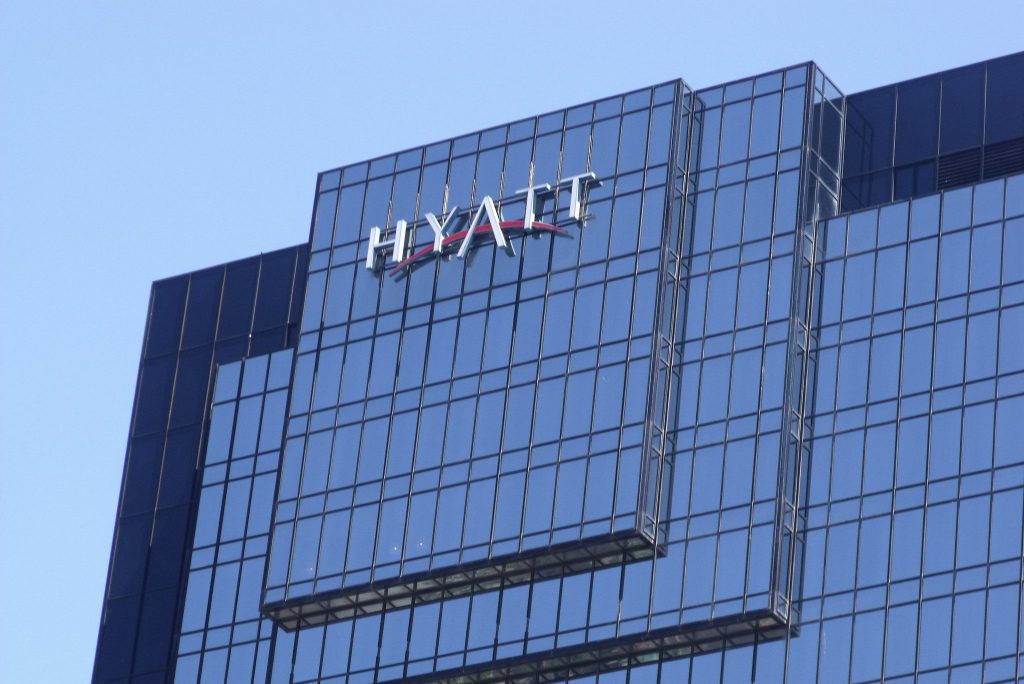
Hyatt leadership is watching select Asian markets navigate the early phase of coronavirus recovery to gauge how the rest of the world will return to some degree of operational normalcy.
A third of Hyatt’s hotels around the world have suspended operations due to declines in occupancy and travel demand during the coronavirus pandemic. But China and South Korea are showing signs of improvement. Short-term transient business bookings recently doubled in South Korea, and only one Chinese Hyatt property remains temporarily closed, down from 26. Last weekend was China’s first major holiday since the crisis, and several properties were sold out. The traveler profile enables Hyatt to provide some degree of a rebound forecast for the rest of the world.
“The fact that you can even have a hotel sell out at this point is a pretty notable thing to begin with. Yes, the hotels in highest demand are those with very significant drive-to marketplace,” Hyatt CEO Mark Hoplamazian said Thursday during a first quarter earnings call. “It validates what we expect to see elsewhere, which leisure and drive-to markets will lead.”
Get the Latest on Coronavirus and the Travel Industry on Skift’s Liveblog
While April is slated to be Hyatt’s worst month for occupancy rates, bookings and occupancy have steadily increased in China and South Korea as the coronavirus infection rates decreased. Once the figure slipped below 100 new cases per day in both countries, there was a significant increase in bookings and demand, Hoplamazian said. Most demand came from drive-to travelers, but Hyatt also saw a surge in demand at properties on Hainan Island, a fly-to destination. While the decline in travel is catastrophic for the industry, Hoplamazian noted performance swings are happening at a swift clip.
“Recognizing the data, we’re talking a couple of weeks here and not quarter after quarter,” he said.
Uncertain Future but Plenty of Liquidity
Hyatt’s leadership team, while optimistic on travel rebounds in China and South Korea, outlined how coronavirus has impacted the company at a variety of levels. Six team members have died from the virus, and 103 colleagues have confirmed cases, Hoplamazian said. About 65 percent of Hyatt’s managed hotel employee base has been furloughed or placed on leave.
First quarter losses mounted to $103 million for Hyatt, as coronavirus severely hindered demand for travel around the world. The global hotel company saw revenue per room, or RevPAR, decline 28 percent across its portfolio. RevPAR declines, at nearly 59 percent, were worst in the company’s Southeast Asia, China, Australia, South Korea, Japan, and Micronesia division. Given the virus only ramped up in North America in the middle of March, Hyatt doesn’t anticipate widespread financial improvements until at least the second half of 2020.
“Notwithstanding the improvements in China and South Korea, results elsewhere have worsened and we expect the second quarter to be our worst quarter of the year,” Hyatt Chief Financial Officer Joan Bottarini said. “May will look a lot like April.”
Hyatt reduced 2020 capital expenses by $125 million, cut investment and corporate spending, and temporarily modified brand requirements to help operators keep cash on hand. The company’s total available liquidity is just over $3 billion, split between cash and revolving credit. The financial moves enable Hyatt to operate for at least 30 months in the current occupancy environment, Bottarini said.
It is too early in the crisis to consider major deals like a merger or acquisition, but Hyatt’s leadership team – like Wyndham and Hilton executives this week on their respective earnings calls – said they anticipated brand conversions to fuel growth in the recovery. With so many companies planning a similar growth strategy, brands like Hilton or Hyatt might have to offer inducements like key money to woo operators to sign onto a franchise agreement. But Hoplamazian said Hyatt’s smaller global footprint also puts the company at a competitive advantage.
“Our best opportunities fall in markets where we’re either underrepresented or not represented at all, which is the vast majority of markets around the world,” he said.
Further Relief
Hyatt needs to survive before it can grow, and that means focusing on getting its operators into a recovery position.
The company began offering in February the owners of its properties in China, and later around the world, fixed fee concessions through June, and Hoplamazian said that could extend into the third quarter if necessary. Temporarily adjusting brand standards and delaying capital improvement requirements also helps operators keep cash on hand during the uncertain recovery timeline.
Management and franchisee fees are typically not included in the concessions since those are tied to revenue performance, and there isn’t much revenue to speak of at the moment, Hoplamazian said.
When Hyatt hotels do reopen, they will have to adhere to Hyatt’s new cleaning standard, which calls for the use of new products, more frequent cleanings, and social distancing measures. A hygiene manager will be designated for each Hyatt property. The company’s hotels in Asia already have a hygiene manager on staff, but Hyatt is encouraging U.S. properties to put someone already on staff through training to get certified into the new role.
It still isn’t known how guests will respond to the hotel industry’s new normal, but Hoplamazian stressed it would not cost owners a significant level of capital at a time when cash is desperately needed.
“We don’t think of it as materially expensive. It’s more about supplies and materials than labor,” he added. “It’s an expansion of what an existing colleague might do as opposed to added staffing.”
"sold" - Google News
May 08, 2020 at 03:01AM
https://ift.tt/3droPPz
Hyatt Notches a Coronavirus Rarity — Sold-Out Hotels - Skift
"sold" - Google News
https://ift.tt/3d9iyrC
https://ift.tt/3b37xGF
Bagikan Berita Ini














0 Response to "Hyatt Notches a Coronavirus Rarity — Sold-Out Hotels - Skift"
Post a Comment